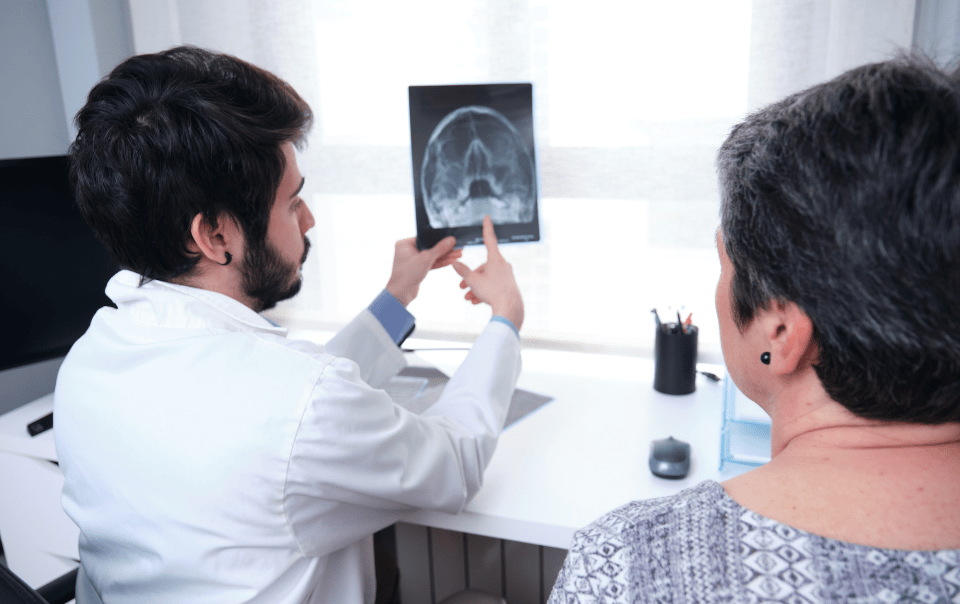Functional Endoscopic Sinus Surgery (FESS) is a minimally invasive type of endoscopic sinus surgery in Los Angeles that removes blockages from the sinuses. The procedure is commonly recommended for individuals with chronic sinusitis or experiencing persistent nasal congestion. Endoscopic sinus surgery differs from traditional sinus surgery and does not require incisions. If you’re preparing for FESS or have recently undergone the procedure, understanding what to expect after the operation can help you manage your expectations and facilitate a smoother recovery.
What to Expect Immediately After Endoscopic Sinus Surgery in Los Angeles
Functional Endoscopic Sinus Surgery is an outpatient procedure. Patients are usually discharged the same day and spend their time healing at home. In rare cases of complications or if additional procedures are necessary, hospitalization may be required. Endoscopic sinus surgery recovery begins in the recovery room. It is quite normal for patients to experience some grogginess and disorientation as their anesthesia wears off. During this time, patients are monitored to ensure there are no complications and their vital signs are normal.
Pain and discomfort are normal during the initial stages of endoscopic sinus surgery recovery. These sensations can range from light to moderate and are manageable with prescription pain relievers and over-the-counter medications. Pain management is discussed with patients during recovery before they are discharged home. Gauze and medical packing are placed into the nostrils to protect against further discomfort and allow the sensitive tissues in the sinuses and nostrils to settle. It is normal for patients to experience some nasal congestion and pressure until the nasal packing is removed, usually within a day or two after the procedure.
Patients should adhere to the post-operative care instructions at home to prevent complications and optimize their recovery after sinus surgery in Los Angeles.
Nasal Care and Hygiene
Unless advised otherwise, use regular saline irrigation (nasal rinses) to keep your nasal passages moist and help clear out mucus and debris. This practice is crucial in preventing infection and promoting healing.
Prevent Nasal Trauma
Avoid blowing your nose or inserting anything into your nostrils, which can disrupt the surgical site and cause bleeding.
Manage Discomfort and Symptoms

Minor bleeding or blood-tinged mucus is common for the first few days. If bleeding becomes excessive or persistent, contact your healthcare provider immediately.
Continue using prescribed or recommended pain medications as directed. Avoid non-steroidal anti-inflammatory drugs (NSAIDs) like aspirin unless your sinus surgeon approves them, as they can increase bleeding risk.
Activity Restrictions
Plan to rest for a few days following surgery. Avoid strenuous activities and heavy lifting, as these can increase the risk of bleeding.
You can usually return to light activities within a few days, but it’s essential to follow your surgeon’s specific recommendations regarding work, exercise, and other physical activities.
Follow-Up Care for Endoscopic Sinus Surgery
Your first follow-up appointment will typically be within a week after surgery. During thisvisit, your ENT specialist will examine the surgical site, remove any remaining packing, and check for signs of infection or complications. Additional follow-up appointments over the next few weeks or months are common to ensure proper healing. During these visits, your doctor may perform endoscopic cleanings to remove crusts and promote healing.
Watch for Signs of Complications
Symptoms of infection include fever, increased pain, and foul-smelling discharge. If you experience any of these, contact your doctor immediately. While some bleeding is normal, heavy or continuous bleeding should be reported to your surgeon. Although rare, any changes in vision, severe headaches, or neck stiffness could indicate a serious complication and require urgent medical attention.
Sinus Surgery in Los Angeles Long-Term Recovery and Outcomes
Most patients notice a significant improvement in their sinus symptoms within a few weeks to months after surgery. This includes reduced nasal congestion, better breathing, and fewer sinus infections. Chronic sinusitis sufferers often experience improved quality of life and fewer missed days from work or school due to sinus-related issues.
If you have allergies, continue to manage them with medications or other treatments to prevent inflammation and sinus issues. Try to avoid exposure to smoke, pollution, and other nasal irritants that can exacerbate sinus problems. Continue using saline nasal sprays or irrigations as part of your daily routine to keep your nasal passages clear and moist.
While FESS can provide long-lasting relief, it is not a cure for chronic sinusitis, especially if underlying issues like allergies or anatomical abnormalities persist. Some patients may need additional ENT/sinus treatments or surgeries in the future.
Tips for a Smooth Endoscopic Sinus Surgery Recovery
- Adhere strictly to the post-operative care instructions provided by your surgeon. This includes taking medications as prescribed, attending follow-up appointments, and following activity restrictions.
- Eat a balanced diet, stay hydrated, and get adequate rest to support your body’s healing process. Avoid smoking and limit alcohol consumption, as these can impair recovery.
- Keep the air in your home moist with a humidifier to help soothe your nasal passages and promote healing.
- Educate yourself about the signs of potential complications and know when to seek medical advice. Being proactive in your care can prevent minor issues from becoming serious problems.
Conclusion
Functional Endoscopic Sinus Surgery in Los Angeles offers significant relief for individuals suffering from chronic sinusitis and other sinus-related problems. While the recovery process involves some discomfort and requires careful management, the long-term benefits of improved breathing, reduced sinus infections, and a better quality of life are invaluable. Follow your sinus surgeon’s post-operative instructions for a solid understanding of what to expect for a smooth, successful recovery.
Contact the Southern California Sinus Institute today for more information.

